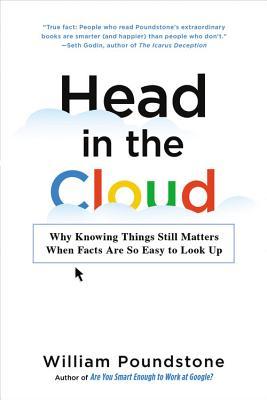What do you think?
Rate this book


352 pages, Paperback
First published July 29, 2016
Ignorance…: Not being able to find Nebraska on a map
Correlates with…: Refusal to vaccinate children for measles, mumps, and rubella
Ignorance…: Thinking the United States has more people than India
Correlates with…: Refusal to eat genetically modified foods
Ignorance…: Thinking shrimp is kosher
Correlates with…: Objecting to reusable bags in supermarkets
Ignorance…: Not knowing which way to turn a screw to loosen it
Correlates with…: Refusing to buy a $100 lightbulb that would save $300
Ignorance…: Not knowing what kind of creature says “Nevermore” in a famous Edgar Allan Poe poem
Correlates with…: Being willing to throw your pet off a cliff for $1 million
Another question asked,
Would you push a button that made you a billionaire but killed a random stranger? No one else would know you were responsible for the death, and you could not be charged with a crime.
Nearly one in five Americans said they’d push that button. Those who scored low on a general-knowledge quiz were more likely to push the button, and yes answers were almost twice as common (36 percent) among those who couldn’t name the year of the 9/11 World Trade Center attacks.
...We are given digital tools that enable headfirst dives into deep pools of interest while excluding everything else. The promise is that “everything else” will always be in the cloud, available on demand. Lost in this seductive pitch is that being well informed is about context as much as it is about factoids. It is the overview that permits the assessment of the particular, that offers all-important insight into what we don’t know.
A broad and lifelong education is not just a means to achieving wealth and health (though it has a lot to do with that). The act of learning shapes our intuitions and imaginations. Known facts are the shared points of reference that connect individuals, cultures, and ideologies. They are the basis of small talk, opinions, and dreams; they make us wiser as citizens and supply the underrated gift of humility—for only the knowledgeable can appreciate how much they don’t know.
The one thing you can’t Google is what you ought to be looking up.